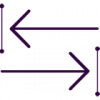The Latest
 |
Use Automation to Assist—Not Replace—Manual Testing[presentation]
Slideshow
Automation is a powerful tool to help testing but too often it is used to replicate existing manual tests. This leads organizations to spend large amounts of time and money constantly updating flaky automated tests and test teams to suffer frustration from having to focus on activities... |
 Jeffrey Martin
Jeffrey Martin
|
 |
Testing in the IoT Era[presentation]
Slideshow
The age of the Internet of Things (IoT) has come. IoT devices enable a new realm of services and applications—medical devices, fitness and fashion, appliances, industrial, etc. The market is expected to exceed $1.7 trillion by 2020 with more than 200 billion connected devices—and 90... |
 Amir Rozenberg
Amir Rozenberg
|
 |
The Lean Startup Method: Its Value for Testers[presentation]
Slideshow
A startup is an organization created to deliver a new product or service under conditions of extreme uncertainty. Approximately 40 percent of all startups will cease operation with investors losing everything; 95 percent will fall short of their financial projections. And the number... |
 Lee Copeland
Lee Copeland
|
 |
Augmenting Regression Testing in Agile Teams[presentation]
Slideshow
Today, three things are undeniable facts of business—projects are becoming more agile, teams are learning to function well remotely, and the tester’s role is evolving. Mike Hrycyk believes that testers in agile teams face daunting challenges and often struggle to keep up with the pace of... |
 Mike Hrycyk
Mike Hrycyk
|
 |
Mobile Testing: Where to Start Your Journey[presentation]
Slideshow
Your company has decided to move into the 21st century and is developing a shiny new mobile app. But you don’t know where to start. How many devices do you need to test? Can you take existing tests and modify them? How do you account for conditions such as loss of connectivity, a virtual... |
 Bambi Rands
Bambi Rands
|
 |
Rise of the Machines: Can Artificial Intelligence Terminate Manual Testing?[presentation]
Slideshow
The state of the art in automated software testing is far from being a replacement for human-guided testing. There is more to testing than setting up preconditions, applying inputs, verifying outputs, and logging the results. Testing requires significant planning, exploring, learning... |
 Tariq King
Tariq King
|
 |
Transform Your Team from QA to Test Engineering[presentation]
Slideshow
Are you being asked to shorten your testing timelines? Do you feel pressured to increase your test automation coverage but don’t have the time, staff, or budget? How do you as a leader upgrade your existing teams’ programming skills and technical abilities without bringing in external... |
 Jennifer Scandariato
Jennifer Scandariato
|
 |
Why Test Automation Is Important for Agile Data Teams: An Interview with Cher Fox[interview] In this interview, Cher Fox, of Fox Consulting, explains why test automation is essential for agile data teams' success. However, there are many other items to consider and address before implementing test automation. You may be able to get started with tools you already have. |
|
 |
For Agile to Succeed, Put People First[article] There’s a lot of buzz in the agile world today about becoming more technical, automating everything, and learning the next miracle tool. While it’s important to establish a process, and tools can help with many steps of the software development lifecycle, the human contribution to project delivery is still the most important. Here are some qualities agile teams should encourage. |
|
 |
Endgame Testing: Exploring Your Agile Product End to End[article] The main goal of endgame testing is to test the system end to end from the user's perspective. This should ensure continuity between components developed by different teams, continuity in user experience, and successful integration of new features. Endgame testing will often identify gaps that are difficult to discover inside agile teams, including flows across the product. |
|
 |
Slim Down Your Test Plan Documentation[article] Test plans are essential for communicating intent and requirements for testing efforts, but excessive documentation creates confusion—or just goes unread. Try the 5W2H method. The name comes from the seven questions you ask: why, what, where, when, who, how, and how much. That's all you need to provide valuable feedback and develop a sufficient plan of action. |
|
 |
Has Continuous Deployment Become a New Worst Practice?[article] Software development has been moving toward progressively smaller and faster development cycles, and continuous integration and continuous deployment are compressing delivery times even further. But is this actually good for businesses or their users? Just because you can deploy to production quickly and frequently, should you? |
|
 |
Shifting Left and Going beyond Agile: An Interview with Michael Nauman[interview] In this interview, Michael Nauman, a testing lead for AutoCAD Web, explains how we can go beyond basic agile principles. He digs into the current state of shift-left testing, the importance of aligning your DevOps with your automation, and using agile as a starting point on your quality journey. |
|
 |
Paying Off the Technical Debt in Your Agile Projects[article] Just as you should not take out a financial loan without having a plan to pay it back, you should also have a plan when incurring technical debt. The most important thing is to have transparency—adequate tracking and visibility of the debt. Armed with the knowledge of these pending tasks, the team can devise a strategy for when and how to “pay off” technical debt. |
|
 |
Are You Agile? An Assessment Can Tell You[article] Plenty of companies want to be agile and go through the motions but are not really agile. An agile assessment allows you to evaluate how teams or even organizations are doing in their agile journey. But like any useful tool, there is no shortage of assessment options available. Here are the acceptance criteria to look for and a framework for using an agile assessment. |







